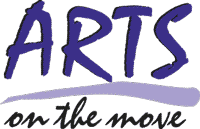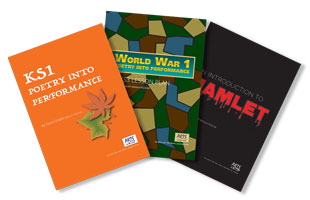DRAMA IN EDUCATION
Drama works well as both a discrete subject in its own right and as a tool for exploring subjects and issues across the curriculum. It provides many opportunities for language learning and developing, for using heritage languages, for gaining knowledge of a range of cultures, for writing in role, and for children to experiment with different styles of speaking, creating sound, moving, gesture and mime.
These pages cover drama at Key Stage 1, Key Stage 2 and Key Stage 3. This supports the teaching of drama from 6 to 16 years. Each section includes an overview, some ideas for drama activities, and some suggested drama resources which will be useful to both experienced drama teachers and new practitioners.
The material also contains links to additional resources, such as drama games, drama methods, lesson plans and schemes of work that all practitioners – but particularly those new to drama – will find useful.
Also included in these pages is some great additional material on how to create a safe and inspiring drama space, plus additional articles on process drama, drama and students with special needs and free downloadable drama achievement reports for primary and middle schools.
Drama at Key Stage 1
Drama is an ideal subject for young children to experience and, at Key Stage 1, it is invaluable as a means for developing communication skills, encouraging positive social interaction, increasing physical control and teaching children how to listen and respond appropriately.
Drama at Key Stage 2
Drama becomes much more useful as a teaching tool in Key Stage 2 and the range of subjects and issues that it can explore expand greatly. Drama at Key Stage 2 is not just confined to the end of term production, it can filter into every aspect of classroom life.
Drama at Key Stage 3
Drama at Key Stage 3 has an important role to play in the personal, social and emotional development of students: the personal skills and qualities developed by students in drama lessons are all invaluable skills which permeate home life, social life and, importantly, life at work.
Drama and Students with Special Needs
Drama is often about collaboration and negotiation and when it is used in mixed-ability groups it can act as a bridge between children with special needs and others in their peer group. It can enable students with particular difficulties and provides an ideal environment to encourage students to work together and to develop trust and friendships.
Guidelines for Socially Distanced Drama
The Guidelines for Delivering Socially Distanced Drama mostly apply to drama delivered in the school hall or drama studio, but should also apply in the cleared classroom or when children are working at their desks. These guidelines in no way supercede any school or government policies and procedures that are currently in place.
Process Drama
Process drama is a method of teaching and learning where both the students and teacher are working in and out of role.
Assessing Drama
Arts On The Move has created some FREE to download Drama Achievement Reports
Health and Safety in a Drama Setting
Information about health and safety in a drama setting including back stage, electrical, lighting, working at height and other key areas.





 This site uses cookies for tracking and statistical purposes. Please read our
This site uses cookies for tracking and statistical purposes. Please read our